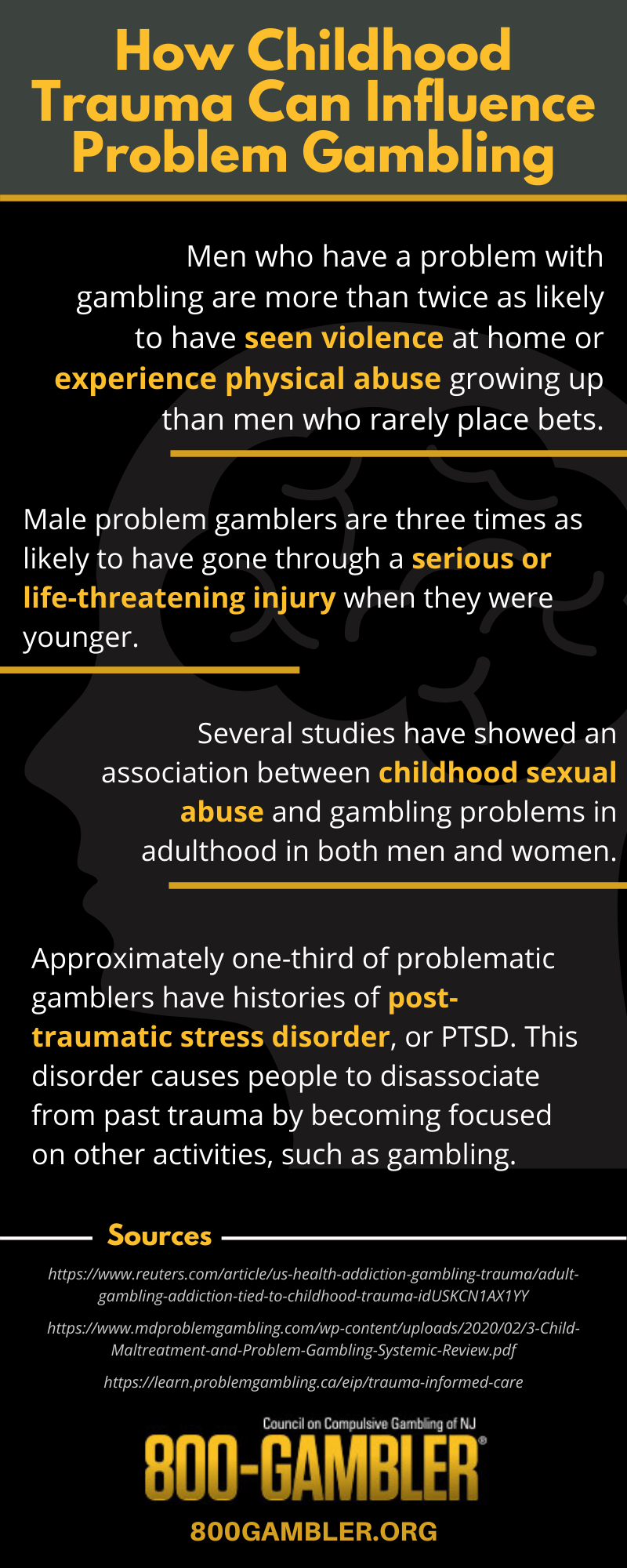For many, gambling is a fun pastime that often results in the positive outcome of winning money — sometimes even large jackpots. For others, however, gambling may become problematic, where the desire to win can create a continuous cycle that can lead to mounting debt and emotional distress.
While problem gambling can be triggered for a variety of reasons, one possible cause is childhood trauma. Studies have shown that harmful gambling has a link to past traumatic issues, more often in males, but among females and young adults as well. Read on to learn more about the connection between early trauma and problem gambling.
What Is Considered Problem Gambling?
Problem gambling is any type of gambling that produces negative effects on one’s daily life. Signs that gambling may be more problematic include interference with work and other commitments, loss of finances due to frequent gambling, and physical or emotional health problems directly linked to gambling.
How Is Excessive Gambling Connected to Childhood Trauma?
Many people with a gambling problem are trying to escape from the pain of their younger days. Research has shown that several problem gamblers had a troubled past.

For several years, some people have been using gambling to dissociate and relieve their stress related to any trauma they experienced growing up. In trauma victims, activities and behaviors utilized to distract or disassociate can be just as harmful as the trauma itself.
Control issues are common in those who have suffered trauma, such as child neglect, domestic violence, and early loss of loved ones, and problematic gambling is often associated with an inability to stop, even after money is lost. Fortunately, there are treatment programs, counseling, and other forms of assistance available to help those who are struggling.
Help for Problematic Gambling
There are several options for individuals looking to overcome their gambling problems. The most common methods are psychotherapy and one-on-one counseling, where patients can get to the true root of their trauma and learn healthy coping methods for moving forward. Support groups are also helpful, as individuals share similar experiences with one another and realize they’re not alone.
If you’re struggling with a gambling problem and need assistance, 800-GAMBLER is here to help. We connect individuals with resources and education that help them move forward. Contact us today to learn more.
Sources:
https://www.njamha.org/conferences/FY2018/NJAMHAA%20Annual/Presentations/2J%20Litwak.pdf



